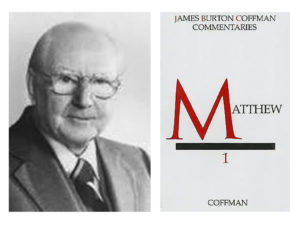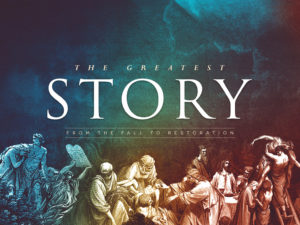Love Is In the Air
 Like a lot of us, I found myself in the seasonal department at Walmart recently. I was there on February 13, which sadly is a little ahead of the game for me. I was amazed to find how much better the selection is the day before the big day. People were there looking at cards, candy, flowers and all kinds of red items with hearts. CNN.com reported on Valentine’s Day spending. Americans buy lots of gifts to show their love this month. Here is the breakdown by the numbers:
Like a lot of us, I found myself in the seasonal department at Walmart recently. I was there on February 13, which sadly is a little ahead of the game for me. I was amazed to find how much better the selection is the day before the big day. People were there looking at cards, candy, flowers and all kinds of red items with hearts. CNN.com reported on Valentine’s Day spending. Americans buy lots of gifts to show their love this month. Here is the breakdown by the numbers:
Little, But Powerful
 Gary Hampton was my preacher in high school, and later he was the preacher in Valdosta, Georgia where I was a youth ministry intern for a summer in college. He shared an article this week that I think is worth sharing with you. Our words have great power to harm or encourage. Let’s all be careful how we use them – Brian
Gary Hampton was my preacher in high school, and later he was the preacher in Valdosta, Georgia where I was a youth ministry intern for a summer in college. He shared an article this week that I think is worth sharing with you. Our words have great power to harm or encourage. Let’s all be careful how we use them – BrianGroundhog Day
 We have holidays in America to recognize or remember presidents, historical figures and significant events among other things. One of the most unique and odd holidays occurs this weekend: Groundhog Day. Dating back to the late 1800’s, the most famous resident of a small town in Philadelphia lives in a hole in the ground. On February 2, everyone waits to see if Phil, the groundhog, will see its shadow when it comes out and whether it will then retreat back inside. For some reason it has been decided the groundhog’s reaction is an indicator of how much longer winter will last. Future anthropologists will see that the same nation that waits for this each year also landed a man on the moon, and they will be baffled.
We have holidays in America to recognize or remember presidents, historical figures and significant events among other things. One of the most unique and odd holidays occurs this weekend: Groundhog Day. Dating back to the late 1800’s, the most famous resident of a small town in Philadelphia lives in a hole in the ground. On February 2, everyone waits to see if Phil, the groundhog, will see its shadow when it comes out and whether it will then retreat back inside. For some reason it has been decided the groundhog’s reaction is an indicator of how much longer winter will last. Future anthropologists will see that the same nation that waits for this each year also landed a man on the moon, and they will be baffled.Being Disciples and Making Disciples
 As I have mentioned a few times, I enjoy golf. It is fun to get out on the golf course, to visit with friends as we walk or ride along and to try to get the ball from the tee to the hole. I emphasize the word try because I am not very good at golf. I enjoy it as much as a bad golfer can, but I never seem to improve. With most sports I enjoy, I have tried to share that enjoyment with my kids. We have shot baskets together or thrown a ball around. We have ridden our bicycles and lifted weights. But when it comes to golf, I have always been hesitant. Why? Because however you may have imagined my description of being bad at golf, the reality is likely quite a bit worse. I would love for them to enjoy the game and even play with me, but I don’t like the thought of them learning it from me. I want to them to learn well. I want them to be better. Fortunately I have not been called to make golfers.
As I have mentioned a few times, I enjoy golf. It is fun to get out on the golf course, to visit with friends as we walk or ride along and to try to get the ball from the tee to the hole. I emphasize the word try because I am not very good at golf. I enjoy it as much as a bad golfer can, but I never seem to improve. With most sports I enjoy, I have tried to share that enjoyment with my kids. We have shot baskets together or thrown a ball around. We have ridden our bicycles and lifted weights. But when it comes to golf, I have always been hesitant. Why? Because however you may have imagined my description of being bad at golf, the reality is likely quite a bit worse. I would love for them to enjoy the game and even play with me, but I don’t like the thought of them learning it from me. I want to them to learn well. I want them to be better. Fortunately I have not been called to make golfers.“We teach what we believe, but we reproduce what we are. Although God in His grace may often use us in spite of ourselves, we normally cannot impart what we do not possess. Discipleship does not happen by accident; it is a process that is animated by an ongoing intention of the heart. No one suddenly stumbles into spirituality, and if we do not decide to apprentice ourselves to Jesus’ authority, we will not become His disciples. Similarly, if we do not consciously intend to reproduce the life of Christ in others, we will miss our calling to make disciples. The more we know Christ, the better we can make Him known.”
The New Testament
 James Burton Coffman is a name that is known by many preachers and teachers in churches of Christ. I have seen his Bible commentaries on the shelves of church libraries and ministers’ offices across the country. He passed away in 2006 at the age of 101, but his writings continue to help students of the Bible learn about God and his word. The following paragraphs from the conclusion of Burton’s commentary on Matthew were shared with me recently. He reminds us of the importance of the New Testament. – Brian
James Burton Coffman is a name that is known by many preachers and teachers in churches of Christ. I have seen his Bible commentaries on the shelves of church libraries and ministers’ offices across the country. He passed away in 2006 at the age of 101, but his writings continue to help students of the Bible learn about God and his word. The following paragraphs from the conclusion of Burton’s commentary on Matthew were shared with me recently. He reminds us of the importance of the New Testament. – BrianA Fresh Start
 It is great to be back with you this week after being away last Sunday. I appreciate working with people like David, John and Kyle who are willing and capable to step in when I am away. I know you were blessed by hearing from David and John last week. This month we begin our second year with the Southwest Church. Our family has loved becoming part of this church family over the past year. The beginning of 2018 was a big change for us. A new year often means a time of change for people.
It is great to be back with you this week after being away last Sunday. I appreciate working with people like David, John and Kyle who are willing and capable to step in when I am away. I know you were blessed by hearing from David and John last week. This month we begin our second year with the Southwest Church. Our family has loved becoming part of this church family over the past year. The beginning of 2018 was a big change for us. A new year often means a time of change for people.Contentment
 One of the things that gets God’s people into trouble throughout scripture is the lack of contentment. When Adam and Eve lived in the garden in God’s presence, they were convinced that they were missing something. The Israelites who had been freed from slavery were ready to give up that freedom in exchange for comfort and familiarity. As God provided for their needs, they longed for different provisions. When left alone for what they felt like was too long, they created an idol to worship. In the time of the Judges they longed for kings. In the time of the kings they longed for different gods. When God sent them a savior, they wanted a revolutionary. Again and again God provided, and they wanted something else. His message through His actions and later through the writings of Peter kept telling them they had what they needed. “His divine power has given us everything we need for a godly life through our knowledge of him who called us by his own glory and goodness.” (2 Peter 1:3)
One of the things that gets God’s people into trouble throughout scripture is the lack of contentment. When Adam and Eve lived in the garden in God’s presence, they were convinced that they were missing something. The Israelites who had been freed from slavery were ready to give up that freedom in exchange for comfort and familiarity. As God provided for their needs, they longed for different provisions. When left alone for what they felt like was too long, they created an idol to worship. In the time of the Judges they longed for kings. In the time of the kings they longed for different gods. When God sent them a savior, they wanted a revolutionary. Again and again God provided, and they wanted something else. His message through His actions and later through the writings of Peter kept telling them they had what they needed. “His divine power has given us everything we need for a godly life through our knowledge of him who called us by his own glory and goodness.” (2 Peter 1:3)Telling His Story
 I have really enjoyed Leon’s Wednesday night class about the church of the first century. The churches that Paul wrote to were different in many ways, but they had something in common. As the story of Jesus made its way into their communities, people received it in different ways. Coming into contact with the gospel demands a reaction. It is not something that many can be neutral about. The people of Ephesus learn that through the uproar that happens in Acts 19.
I have really enjoyed Leon’s Wednesday night class about the church of the first century. The churches that Paul wrote to were different in many ways, but they had something in common. As the story of Jesus made its way into their communities, people received it in different ways. Coming into contact with the gospel demands a reaction. It is not something that many can be neutral about. The people of Ephesus learn that through the uproar that happens in Acts 19.Preaching to the Choir
 I know what I’m about to say is what most, if not all, of those who read this already know. But sometimes I think the choir needs a little reassurance that the song they’re singing really is the most beautiful hymn ever sung. In I Thessalonians 2 Paul says:
I know what I’m about to say is what most, if not all, of those who read this already know. But sometimes I think the choir needs a little reassurance that the song they’re singing really is the most beautiful hymn ever sung. In I Thessalonians 2 Paul says:
The world is seeking cures to all kinds of physical and social ills that plague us. Unfortunately, in the process it often overlooks, if not suppresses, the greatest cure of all – the Gospel. We know better. Let’s make sure we continue to sing out this message of hope to the world because in the end it’s the only cure for what ails mankind most. Sing on then choir and do so knowing that our song pleases God and all mankind is benefited. And as you sing, smile and say to yourself, “This is pretty awesome. I’m bringing joy to God and benefiting the whole world.” Cool!
Thanksgiving
 In our nation, we set aside time this week to consider the things we are thankful for. I hope we spend a lot more than these few days each year doing that. God has done so much in our lives that we should be thankful for Him daily.
In our nation, we set aside time this week to consider the things we are thankful for. I hope we spend a lot more than these few days each year doing that. God has done so much in our lives that we should be thankful for Him daily.